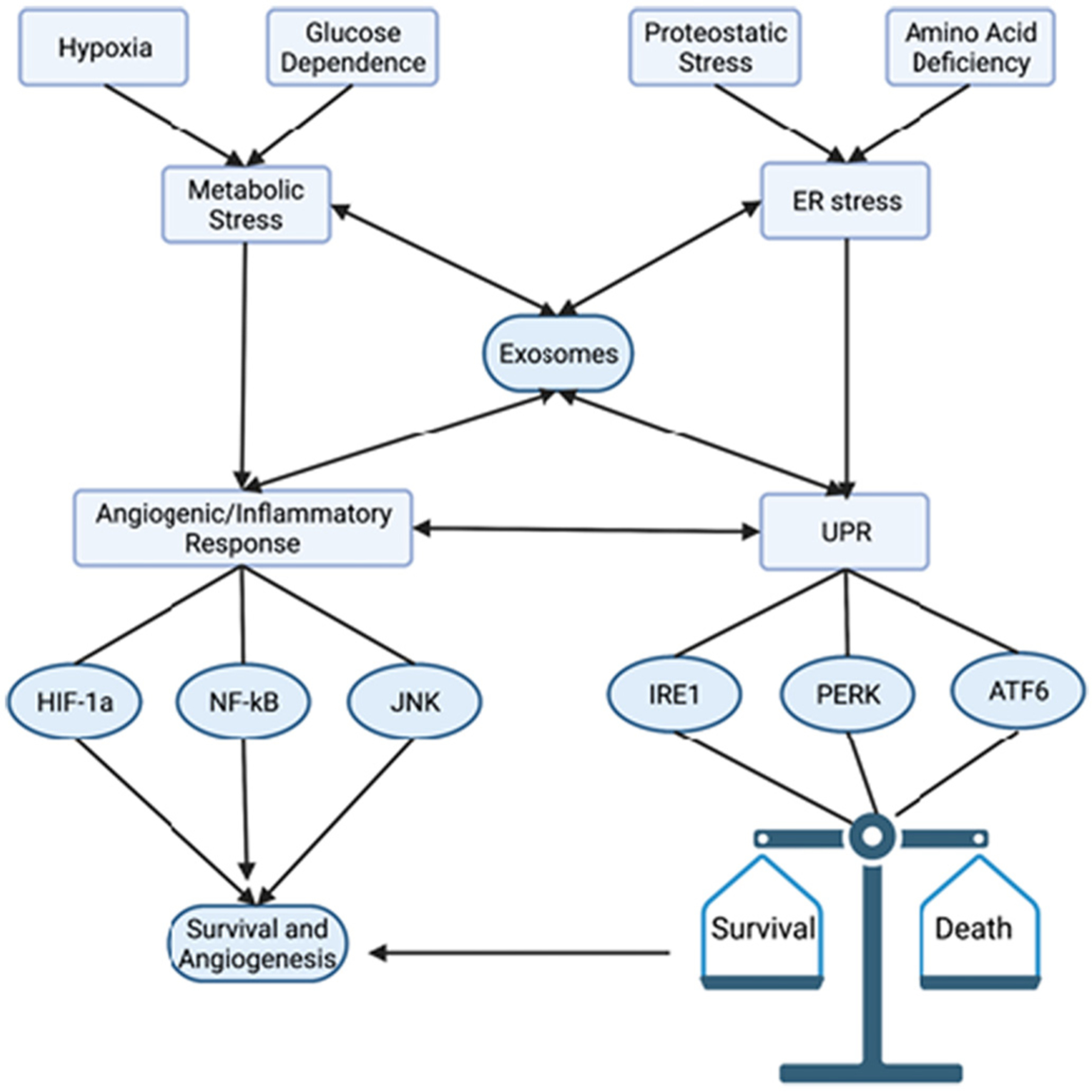Fig. 2.

ER stress and Angiogenesis in Cancer. Due to their rapid growth, cancer cells encounter several cellular stresses including hypoxia, low availability of glucose, proteostatic stress, and amino acid deficiencies. These stresses activate a generalized inflammatory response, leading to HIF-1a, NF-kB, and JNK (among other pro-inflammatory transcription factors) activation. This increases angiogenesis, nutrient delivery, and initiates survival signaling. Proteostatic (ER) stress and amino acid deficiency lead to activation of the UPR, which may lead to cell survival or death. Importantly, these cellular stress events may be communicated between cancer cells and non-malignant stromal cells in various mechanisms involving exosomes (discussed in text). Typically, the pro-survival outcome of the UPR corresponds to increased angiogenic signaling and exhibits significant synergy and crosstalk with the generalized inflammatory response.
